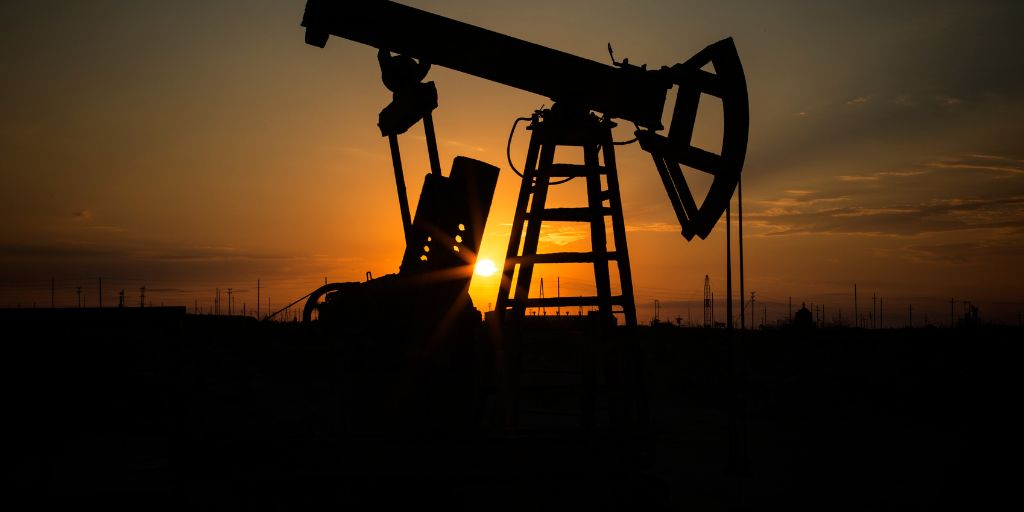COP29: New Report on SOCAR Highlights Azerbaijan’s Damning Fossil Fuel and Human Rights Record
As Azerbaijan prepares to host the UN’s 29th Climate Conference (COP29) in November, environmental and human rights organizations Urgewald and CEE Bankwatch launch a special report on the country’s state-owned oil and gas company, SOCAR.
23 October 2024

Despite global calls to reduce fossil fuel reliance and transition to renewable energy, SOCAR is expanding its fossil fuel production aggressively, raising questions about Azerbaijan’s climate leadership. At the same time, concerns about Azerbaijan’s human rights record further complicate its position as host of this pivotal climate summit.
SOCAR, the Beating Fossil Heart of Azerbaijan’s Economy
SOCAR remains the backbone of Azerbaijan’s economy. In 2023, the state company produced nearly 174 million barrels of oil equivalent (mmboe), almost double the output of BP, its closest partner in the region. SOCAR’s dominance is reinforced by its extensive operations in both offshore and onshore oil fields and its co-ownership of critical infrastructure, including pipelines that transport Azerbaijan’s resources to European markets. The country’s annual gas production is set to increase from 37 billion cubic meters (bcm) today to 49 bcm by 2033.
“Given SOCAR’s pivotal role in Azerbaijan’s economy and its close ties to the country’s political elite, its influence will surely be felt throughout the climate negotiations in Baku this November,” said Regine Richter, Energy Campaigner at Urgewald and lead author of the report. “Looking at the state company’s expansion plans, international partnerships and geopolitical ties, as we prepare for COP29, we cannot but ask ourselves: Did we put the fox in charge of the henhouse?”
SOCAR’s recent agreement with the European Union to boost gas exports by 17% by 2026 underscores the company’s—and Azerbaijan’s—continued commitment to fossil fuel expansion. In 2023 SOCAR has funneled nearly 97% of its capital expenditure into oil and gas projects, signaling that its focus remains firmly on expanding fossil fuel production despite the global push for decarbonization. Its renewable operations remain insignificant.
SOCAR’s International Partners
SOCAR’s ambitions also rest on its collaborations with several of the world’s largest fossil fuel companies. These partnerships include long-standing ventures as well as new extraction projects with BP, TotalEnergies, Italy’s Eni and the United Arab Emirates’ ADNOC.
In 2024, SOCAR also signed new agreements with Russian oil giant Tatneft and Kazakhstan’s KazMunayGas to boost oil shipments across Azerbaijan to Europe and explore additional extraction opportunities. These partnerships strengthen SOCAR’s international influence and cement its role as a key energy exporter.
The Banks Fueling SOCAR’s Fossil Fuel Expansion Plans
SOCAR’s growth depends on substantial financial backing from major global banks. Research by the Banking on Climate Chaos Coalition revealed that SOCAR has received over $6.8 billion in loans and underwriting from financial institutions between 2021 and 2023. JPMorgan Chase and Citigroup top the list, providing $1.8 billion and $1 billion respectively, while Japanese banks like Mitsubishi UFJ Financial and Mizuho Financial have contributed hundreds of millions of dollars.
Human Rights Violations Linked to SOCAR and the Azerbaijani Government
Azerbaijan’s heavy dependence on oil and gas is not only a concern for climate advocates but also for human rights defenders. President Ilham Aliyev, who succeeded his father in 2003, maintains close control over SOCAR, using it as both an economic and political tool. SOCAR’s Management Board is directly appointed by the president, solidifying the company’s role in propping up Azerbaijan’s political elite.
SOCAR has faced numerous accusations of human rights abuses and corruption. Investigations have revealed illegal contract terminations, unsafe working conditions, wage delays, and environmental pollution across the sector. Critics of SOCAR, including human rights defenders and journalists, have faced harassment, imprisonment, and even abduction.
“The Azerbaijani government shows zero tolerance towards dissent and is not interested in civic dialogue,” said Manana Kochladze, Strategic Area Leader for Democratization and Human Rights at CEE Bankwatch. “The state meets resistance with brutal violence and persecution, both domestically and internationally. The cases of Gubad Ibadoghlu, academic and fossil fuels expert, and Afgan Sadiqov, the editor-in-chief of the Azerbaijani media Azel.TV, currently in Georgia awaiting extradition, exemplify this grim pattern. Where other governments partner with civil society to tackle the monumental challenge of the climate crisis, the Aliyev regime systematically threatens, intimidates and harasses environmental and human rights defenders. This attitude does not inspire confidence in the upcoming negotiations in Baku.”
Moreover, Azerbaijan’s record of human rights violations extends beyond the fossil fuel sector. The government has cracked down on civil society, with around 300 political prisoners currently detained, including environmental activists and human rights defenders who have spoken out against the government and SOCAR’s operations. This hostile environment raises concerns about whether civil society will be able to participate meaningfully in the UN Climate Conference in Baku.
COP29: A Platform for Greenwashing?
Azerbaijan’s pick to host COP29 raised significant concerns among climate activists and human rights groups. SOCAR has launched a “green energy division” called SOCAR Green, promising investments in wind, solar, and carbon capture technologies. However, critics argue that this is little more than a greenwashing effort and SOCAR Green’s projects are primarily designed to free up more fossil fuels for export, rather than signal a genuine shift toward renewable energy.
As the world gathers in Baku for COP29, many are questioning whether Azerbaijan can credibly lead the global conversation on climate action and drive meaningful progress toward decarbonization.
Never miss an update
We expose the risks of international public finance and bring critical updates from the ground – straight to your inbox.
Tags: Azerbaijan | COP29 | fossil gas
